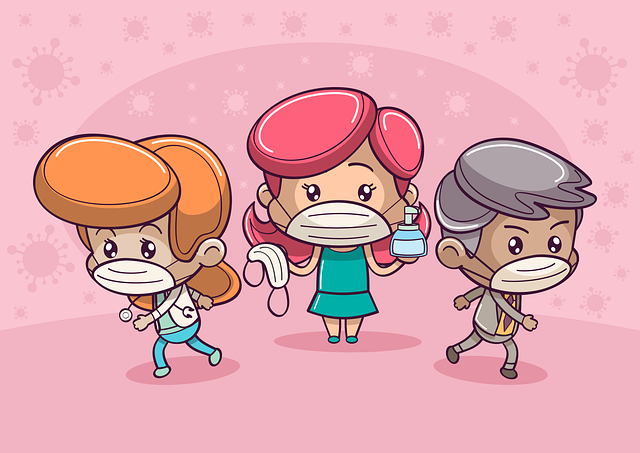In Clackamas County, Oregon, understanding child welfare legal services is crucial for families facing DHS child welfare cases. These services protect both parental rights and the best interests of the child, offering legal assistance from initial investigations to court proceedings. The county's Clackamas County child advocacy centers provide specialized support, counseling, and legal aid for children and parents involved in these complex cases. By adhering to Oregon's child protective services law and Oregon family law, these services help families navigate crises, promote healing, and achieve positive outcomes while preserving parent-child relationships.
“In Clackamas County, Oregon, understanding child welfare legal services is paramount for families navigating complex family law issues. This comprehensive guide explores critical aspects of parental rights protection within the framework of Oregon’s family law, highlighting the crucial role of the Department of Human Services (DHS) in child welfare cases. From supporting young victims and witnesses through Clackamas County’s dedicated child advocacy programs to deciphering the child protective services law, this article equips parents with knowledge to protect their rights and access vital resources.”
- Understanding Child Welfare Legal Services in Clackamas County
- Parental Rights Protection: A Cornerstone of Oregon Family Law
- The Role of DHS in Child Welfare Cases
- Clackamas County Child Advocacy: Supporting Young Victims and Witnesses
- Navigating the Child Protective Services Law in Oregon
- Resources and Support for Families Facing Child Welfare Issues
Understanding Child Welfare Legal Services in Clackamas County

In Clackamas County, understanding Child Welfare Legal Services is paramount for families navigating complex DHS child welfare cases. These services are designed to ensure that parental rights protection remains a top priority while also advocating for the best interests of the child. The county’s dedicated child advocacy team works closely with Oregon family law professionals to provide legal assistance and representation in all aspects of child protective services law, from initial investigations to court proceedings.
Clackamas County child welfare legal services play a crucial role in supporting families by offering guidance on their rights and obligations during these challenging times. They help parents understand the process, ensuring they can actively participate in making informed decisions regarding their children’s future while adhering to state laws and regulations governing child protective services.
Parental Rights Protection: A Cornerstone of Oregon Family Law

In Oregon, including Clackamas County, parental rights protection is a fundamental aspect of the state’s family law framework, especially in child welfare cases involving the Department of Human Services (DHS). These rights are carefully enshrined to ensure that parents are treated fairly and their involvement in crucial decisions affecting their children is safeguarded. When it comes to DHS child welfare cases, understanding and asserting parental rights is essential for all involved parties. The goal is to maintain a balance between protecting the child’s well-being and preserving the parent-child relationship.
Child protective services law in Oregon aims to provide both comprehensive support for vulnerable children and robust safeguards for the legal rights of their parents. Clackamas County child advocacy groups play a vital role in this process, offering necessary legal aid to ensure that parental rights are protected throughout the welfare proceedings. This assistance is critical in navigating complex DHS child welfare cases, ensuring that families have a fighting chance to reunify or establish new, safe living arrangements for their children while upholding their own rights under Oregon family law.
The Role of DHS in Child Welfare Cases

In Clackamas County, the Department of Human Services (DHS) plays a pivotal role in ensuring the well-being and safety of children involved in welfare cases. As the primary child protective services agency, DHS is tasked with investigating reports of child abuse or neglect, providing temporary care, and working towards permanent solutions that prioritize the best interests of the child. Their comprehensive approach includes not just removing children from harmful situations but also offering support and resources to help families regain stability and maintain parental rights.
The department’s work in Clackamas County is guided by Oregon family law and child welfare legal services, ensuring that all parties involved—from parents to children—have access to the necessary protection and guidance. Through their dedicated child advocacy efforts, DHS collaborates with various community partners to address the complex needs of vulnerable children, fostering a network of support that extends beyond immediate case management. This collaborative approach underscores the department’s commitment to not just responding to crises but also preventing them through proactive measures.
Clackamas County Child Advocacy: Supporting Young Victims and Witnesses

Clackamas County stands out for its robust Child Advocacy program, designed to support young victims and witnesses involved in child welfare cases. This initiative recognizes the unique needs and potential trauma experienced by children entangled in legal proceedings related to parental rights protection and DHS child welfare cases. The county’s commitment to Clackamas County child advocacy ensures that these vulnerable individuals receive specialized care and services.
Through this program, trained professionals work diligently to facilitate a safe and supportive environment for children who have been affected by Oregon family law matters. They offer counseling, legal assistance, and advocacy, empowering young people to share their stories without the fear of retraumatization. By addressing these issues head-on, Clackamas County’s Child Advocacy program plays a pivotal role in fostering healing and ensuring positive outcomes for children involved in complex DHS child welfare cases.
Navigating the Child Protective Services Law in Oregon

In Oregon, including Clackamas County, the Department of Human Services (DHS) oversees child welfare cases under the Child Protective Services Law. This legislation is designed to protect children and ensure their safety while also preserving and supporting parental rights. The law outlines clear procedures for reporting suspected child abuse or neglect, investigation processes, and potential outcomes. Understanding this legal framework is crucial for individuals involved in DHS child welfare cases.
Clackamas County offers specialized child welfare legal services to navigate these complex matters. These services are vital in protecting the rights of parents and guardians while ensuring the best interests of the child are maintained. With a dedicated team, Clackamas County child advocacy centers provide support, guidance, and representation, helping families understand their options and rights within Oregon family law.
Resources and Support for Families Facing Child Welfare Issues

Families facing child welfare issues in Clackamas County have access to a range of resources and support services designed to protect parental rights and ensure the best outcome for all involved. The county’s Child Advocacy Team brings together various professionals, including lawyers specializing in Oregon family law and DHS child protective services law, to offer comprehensive assistance. This collaborative approach ensures that families receive tailored guidance throughout their DHS child welfare cases, navigating complex legal processes with compassion and expertise.
Clackamas County child advocacy focuses on empowering parents by providing them with the knowledge and tools necessary to understand their rights and responsibilities. Legal aid programs specifically cater to these situations, offering free or low-cost consultations and representation. By leveraging Clackamas County child advocacy resources, families can better protect their interests while working towards resolving child welfare concerns in a supportive environment.






